Prempeh Integrated Science Question Bank (Objectives)

Prempeh integrated science
Prempeh Integrated Science Question Bank (Objectives)
Prempeh integrated science: Candidates are require to attempt all questions within a standard time frame. Choose any of the options A, B, C and D as the correct answer
1. What is the name of the scientist who first discovered penicillin
A. Becquerel B. Fleming C. Archimedes D. Lavoisier
2. To which of the following classes of arthropod do spiders belong
A. Insecta B. crustacea C. arachnida D. Myriapoda
3. Which of the following statement(s) is/are true about the theory of the particulate nature of matter
I. Living things are made up of a complex mixture of pure substances
II. Matter is made up of atoms
III. Matter is made up of ions
IV. Matter is made of molecules.
A. I only B. I and II only C. II, III and IV only D. I, II, III and IV
4. Who discovered the cells of the living organisms
A. Robert Brown B. Robert Hooke C. Robert Koch D. Louis Pasteur
5. Which chemical process of rock weathering produces a new mineral with water crystallization
A. Hydrolis B. hydration C. solution D. carbonation
Prempeh Integrated Science Question Bank (Objectives)
6. The uneven heating of the earth’s surface is caused by all of the following except
A. The curvature of the earth
B. The rotation of the earth
C. Differences in the absorption of radiant heat energy by water and land
D. Differences in the velocities of seismic waves
7. Plants absorb soil nitrogen in the form of
A. Nitrogen gas B. ammonia gas C. nitrite gas D. nitrate ion
8. Below is a list of parts of the mammalian skeleton
I. Skull II. Vertebrae III. Clavicle IV. Humerus V. tibia VI. Fibula VII. Femur VIII. Radius IX. Ulna X. pelvic girdle
The appendicular skeleton includes all the parts listed above except?
A. I and II B. III, IV and V C. VI, VII and VIII D. IV, VI and VII
9. Which part of the flower make up the carpel
A. Anther and filament
B. Ovary, style and anther
C. Ovary, filament and stigma
D. Ovary, style and stigma
10. Which of the following diseases is caused by vitamin deficiency
A. Ascariasis B. dysentery C. night blindness D. tuberculosis
Integrated Science Question Bank
11. The presence of villi in the ileum is to
A. Speed up the process of digestion
B. Keep food in the ileum for a longer time for digestion to be completed
C. Secrete digestive enzymes
D. Increase the surface area of the ileum for absorption
12. Which of the following is the main product of cell respiration
A. Carbon dioxide B. energy C. glucose D. water
13. Which of the following is an example of diffusion of mammals
A. Movement of urine from the kidney into the urinary bladder
B. Movement of saliva from the salivary glands into the buccal cavity
C. Sweating
D. Gaseous exchange in the alveoli of the lungs
14. Which of the following is not a product of photosynthesis
A. Oxygen B. chlorophyl C. carbon dioxide D. water
15. A quadrat is used to sample
A. Floating organisms of a marine habitat
B. Floating organisms of a freshwater habitat
C. Land animals
D. Land vegetables
Prempeh Integrated Science Question Bank (Objectives)
16. Temperature is an example of
A. A biotic factor B. an abiotic factor C. a secondary consumer D. a producer
17. Human activities are responsible for the following effects on the earth’s atmosphere
A. Global warming and acid rain
B. Global warming and population increase
C. Population increase and acid rain
D. Increase in gravitational pull on the earth and lead poisoning
18. Which of the following is likely to make a child a cripple
A. Malaria B. cholera C. tuberculosis D. poliomyelitis
19. Which of the following substances reacts with an alkali to produce a gas that has pungent smell, turns red litmus blue and does not have any effect on blue litmus paper
A. Hydrochloric acid, aq HCl
B. Ammonium tetraoxosulphate (VI), (NH4)2SO4
C. Ammonia gas, NH3(g)
D. Sodium hydroxide, NaOH
20. Purple colouration of older leaves of plants is a major deficiency symptom of
A. Calcium B. nitrogen C. potassium D. phosphorus
Integrated Science Question Bank (Objectives)
21. Water is polar because it
A. Boils at 100oc
B. Is attracted by charged materials
C. Falls by gravity
D. Contains an oxygen atom in the molecule
22. Through which of the following sources or processes can water get contaminated
I. Burning fuels containing sulphur
II. Allowing domestic waste to flow into rivers
III. Using organic manure
IV. Use of inorganic manure
A. I, II only B. II and III only C. I, II and IV only D. I, II and III only
23. Which chamber of the digestive system of ruminants regurgitates cud for chewing
A. Rumen B. reticulum C. omasum D. abomasum
24. Ultra-filtration is caused by pressure being set up in the glomerulus of the Bowman’s capsule because
A. The afferent arteriole is longer than the efferent arteriole
B. The afferent arteriole is wider that the efferent arteriole
C. The efferent arteriole is wider that the afferent arteriole
D. The efferent arteriole is longer than the afferent arteriole
25. Which of the following is the outermost embryonic membrane of the mammalian embryo
A. Amnion B. allantois C. chorion D. yolk sac
Prempeh Integrated Science Question Bank (Objectives)
26. The identical twins look alike because
A. They develop from one ovum fertilized by two sperm at the same time
B. They develop from two ova fertilized by one sperm at the same time
C. They develop from two ova fertilized by two sperm at the same time
D. They develop from one ovum fertilized by one sperm
27. A patient with blood pressure reading of 200/120 mmHg is likely to be suffering from
A. Hypotension B. cardiac arrest C. stroke D. hypertension
28. Which of the following materials can easily conduct heat and electricity
I. Insulator II. Conductors III. Semi-conductors
A. I, II and III B. II and III only C. I only D. III only
29. All of the following materials are insulators except
A. Copper B. rubber C. polythene D. air
30. Which radiant emission can be used to examine cracks in casting
A. Alpha B. gamma X-ray D. beta
Prempeh Question Bank (Objectives)
31. A submarine at a depth in the sea will resurface when
A. The pressure on it reduced
B. Its speed is reduced
C. Water is pumped out of it
D. Air is pumped out of it
32. Which of the following methods will you use to put out the fire if someone’s clothing catches fir in the kitchen
A. Sand bucket B. fire blanket C. add cold oil D. carbon dioxide gas
33. Which of the following ingredients are necessary to create and sustain a fire
I. Heat II. Oxygen III. Fuel
A. I and II B. I anly C. II and III only D. I, II and III
34. Hospital waste is a special type of waste that is burnt in kilns in some hospitals to
A. Save the lives of patients in the hospital
B. Save energy used in the hospital
C. Prevent contact with humans and animals so that it does not transmit diseases
D. Recycle the disposable metal waste
35. Which of the following statements about small-scale industry is true
A. It makes use of advanced technology
B. It is always capital intensive
C. It is always sited in rural areas
D. It operates with minimum input
Prempeh Integrated Science Question Bank (Objectives)
36. The method of growing small amounts of tissue in nutrients to make whole new plants is called
A. Plant culture B. genetic engineering C. tissue culture D. nutrient culture
37. Biotechnology is applied in the production of which of the following substances
I. Banku II. Beer III. Insulin IV. Some drugs
A. I and II only B. II and III only C. I, II and IV only D. I, II, III and IV
38. The SI unit of work is the
A. Ampere B. Joule C. newton D. watt
39. Brass is an alloy of
A. Copper and tin B. copper and zinc C. lead and tin D. nickel and chromium
40. The following negative effects will be brought about on the environment by bauxite mining
I. Dust pollution
II. Communities may lose their farmlands
III. Dust and sound pollution may affect the health of the people
IV. Rainfall will stop
A. II B. II and IV C. I, II and III D. I and II
Question Bank (Objectives)
41. Oil spillage onshore and offshore can cause the following
I. Kill marine animals
II. Destroy farms
III. Start fires when the oil comes into contact with heat
IV. Displeasure and agitation among businesses in the communities near the spillage site
A. I and III B. I and IV C. I, II and III D. I, II, III and IV
42. Iron corrodes when it is in contact with
A. Just air B. just moisture C. air and moisture D. oil
43. The following are examples of how the production of petrochemicals has made living comfortable or cheaper
A. Plastics have replaced glass, wood and metal in many areas of life
B. Plastics are used to make medicines
C. Plastics are cheap
D. Some plastics produce hydrogen chloride gas when burnt
44. Daytime slumber is a symptom of an advanced stage of
A. Trypanosomiasis B. schistosomiasis C. onchocerciasis D. elephantiasis
Prempeh Integrated Science Question Bank (Objectives)
45. The following are causes of non-pathogenic diseases except
A. Stress B. malnutrition C. toxins D. viruses
46. Which of the following methods of pest and disease control is most ecologically friendly
A. Cultural methods
B. Physical method
C. Integrated pest management
D. Biological method
47. Abelmoschus is the botanical name for
A. Onion B. pepper C. lettuce D. okro
48. Mulching is done mainly to
A. Conserve soil moisture
B. Conserve soil nutrients
C. Protect soil microbes
D. Control leaching
49. The part of the mammalian brain concerned with such life activities as memory, vision, touch and taste is the
A. Cerebral cortex B. cerebellum C. optic lobe D. medulla oblongata
50. Which of the following is not a primary colour of light
A. Red B. blue C. yellow D. green
Integrated Science Question Bank (Objectives)
51. The colour of light depends on its
A. Amplitude B. intensity C. velocity D. frequency
52. A non-luminous object such as the moon can be seen when the light falling on it is
A. Absorbed B. diffracted C. reflected D. refracted
53. The heat required to raise the temperature of 5Kg of water by 5oc (specific heat capacity of water is 4200 JKg-1K-1) is
A. 50 KJ B. 85 KJ C. 105 KJ D. 115 KJ
54. The heat required to melt a substance (melting point 60oc, specific heat capacity 100 JKg-1K-1 and latent heat of fusion 20,000 JKg-1) of mass 0.50 Kg, initially at 50oC, is
A. 1050 J B. 1500 J C. 10,000 J D. 10,500 J
55. The purpose of the constriction in the stem of a clinical thermometer is to
A. Prevent the liquid from expanding beyond that point
B. Prevent the liquid from flowing back into the bulb
C. Increase the flow of the liquid
D. Make the thermometer respond more quickly to temperature change
Prempeh Integrated Science Question Bank (Objectives)
56. Which of the following statements about mercury as a thermometric liquid is true
A. it has a low heat capacity
B. It is colourless
C. It does not vaporize
D. It has high density
57. In human, the sex of a baby is determined by
A. The egg B. the sperm C. both egg cell and sperm D. neither egg cell nor sperm
58. A test cross is used to check the genotype of
A. A dominant phenotype
B. A dominant heterozygote
C. Recessive homozygote
D. A recessive phenotype
59. Which of the following statements about evaporation is correct
A. It only occurs at certain temperatures
B. The rate increases with a decrease in temperature
C. It occurs throughout a liquid
D. The fater moving particles escape from the surface of a liquid
60. Sunlight can raise the temperature of metals more quickly than raising the temperature of water because
A. The specific heat capacity of metal is lower than that of water
B. The specific heat capacity of metal is greater than that of water
C. Metals radiate more heat than water
D. Water conducts heat more quickly than metal
Other also read: Presec Integrated Science Question Bank (objectives)
Answers To Prempeh Integrated Science Question Bank (Objectives)
- B
- C
- C
- B
- B
- D
- D
- A
- D
- C
- D
- B
- D
- A
- D
- B
- A
- D
- B
- B
- B
- C
- D
- B
- C
- D
- D
- B
- A
- B
- C
- B
- D
- C
- D
- C
- D
- B
- B
- C
- D
- C
- A
- A
- D
- C
- D
- A
- A
- C
- A
- C
- C
- D
- B
- C
- B
- A
- D
- A
Post Disclaimer
The information contained in this post is for general information purposes only. The information is provided by Educative News and while we endeavour to keep the information up to date and correct, we make no representations or warranties of any kind, express or implied, about the completeness, accuracy, reliability, suitability or availability with respect to the website or the information, products, services, or related graphics contained on the post for any purpose.

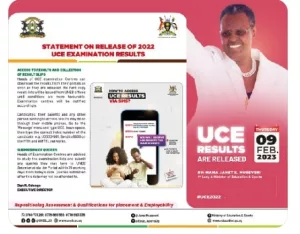


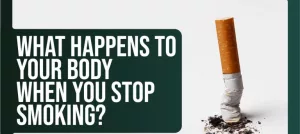
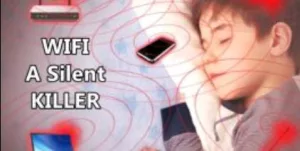

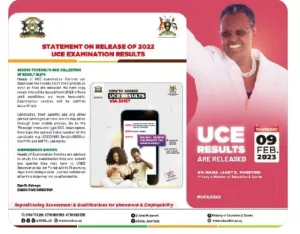
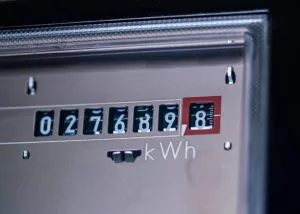
I gets better understanding anytime I solve such questions. It’s really helps me a lot to learn and understand new terms concerning integrated science
Yeah is very interesting